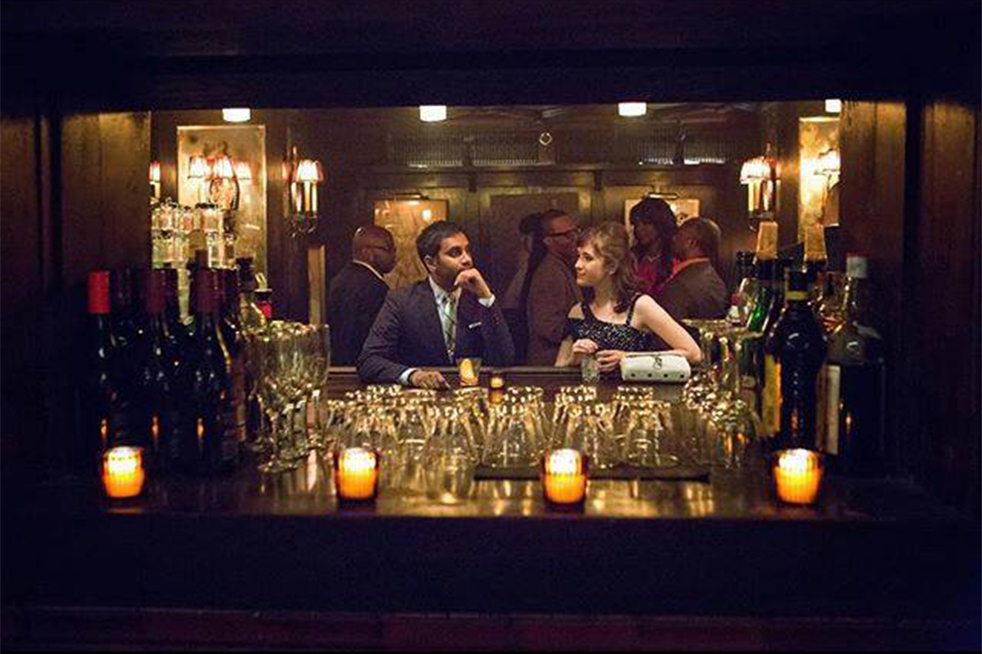Last Friday, Nov. 6, Netflix debuted “Master of None,” a new comedy series created by Aziz Ansari (“Parks and Recreation”) and Alan Yang, a “Parks and Recreation” writer. The fully released ten-episode first season features Dev (Ansari), an actor in commercials who wishes to hit the big screen, as he navigates New York City, relationships, social issues and life choices.
Although “Master of None” is a comedy, this show has realistic themes. Adding new dimensions and depth to its plot without detracting from the comedy, the show tackles issues such as racism and sexism.
Dev’s crew includes Brian (Kelvin Yu, “Cloverfield”), another first-generation Asian-American; Denise (Lena Waithe, a writer for “Bones”), a black lesbian, and Arnold (Eric Wareheim, “Tim and Eric Awesome Show,” “Great Job!”), who is a typical Wareheim character. These characters do not appear in each episode; however, each has his or her own limelight in specific episodes.
Because of this diverse cast, episodes can deal with each person’s own unique social concerns and life struggles without becoming boring or repetitive.
In the episode entitled “Parents,” Dev and Brian try to hang out with their parents to learn and appreciate their struggles when emigrating from India and Taiwan, respectively. Ansari’s own, real life parents, Shoukath and Fatima Ansari, play Dev’s parents, Ramesh and Nisha.
In the episode “Ladies and Gentlemen,” Denise and Rachel (Noël Wells, “Saturday Night Live”), Dev’s love interest, discuss, as well as actually encounter, both casual and criminal sexism and misogyny.
In “Old People,” Rachel and Arnold spend time with their lonely grandparents and hear stories about their youths. These episodes provide characterization and character development that a supporting cast does not often receive in television. The episodes also suggest to viewers that maybe they should spend more time with family or not post toxic messages to women on Instagram.
Not to be outdone, Dev also evolves through the season with his own unique experiences involving representation and relationships. In “Indians on TV,” Dev and his friend and fellow actor Ravi (Ravi Patel) are asked to do stereotypical Indian accents for a role. When Dev later gets a chance to expose the studio’s internal racism or suck it up and get paid for the role, his friends want him to seek blood.
On the other hand, rapper Busta Rhymes, as himself, tells Dev, “Don’t play the race card. Charge it to the race card.” There is never a clear right or wrong answer presented for this situation; rather, the episode focuses on the struggles of being in this position to begin with. This makes the scenes more emotional and empathetic, and this unique approach is taken in the other episodes of “Master of None,” as well.
The episode “Indians on TV” in particular also exposes an irony — the studio claimed that having more than one Indian character on-screen automatically makes it an “Indian TV show,” which, in turn, makes the show less relatable to a wider audience. However, at one point, there are three Indian characters on-screen — Dev, Ravi and the bodybuilder Anush (Gerrard Lobo, “My Parents are Crazier than Yours”) — and it does not feel forced, stereotypical or anything other than simply yet another funny scene.
Despite the heavy overtones, the comedic scenes are frequent and funny. When it is revealed to Anush that the movie “Short Circuit 2” cast a white actor in brown-face makeup to play an Indian character, forlorn, he pauses and then asks, “Is Mindy Kaling real?” At another point, in the episode “Nashville,” Dev and Arnold intensely discuss Eminem’s “Lose Yourself” before Denise interrupts, “Can we please talk about literally anything else?”
With “Parks and Rec” alumni backing the show, Ansari’s stand-up background, Wells’ “SNL” experience, and Wareheim’s ability to just be Eric Wareheim, it would have been difficult to make a show that was not inherently funny. Nevertheless, the comedy in the first few episodes of “Master of None” is a bit lacking and overextended wherever it does appear. Thankfully, the comedic scenes pick up and tighten up as the show progresses.
As masterfully crafted as the Italian pasta dishes that its main character loves to eat, “Master of None” performs its five hours of comedic duty while also allowing its audience to empathize with a diverse ensemble of characters.
